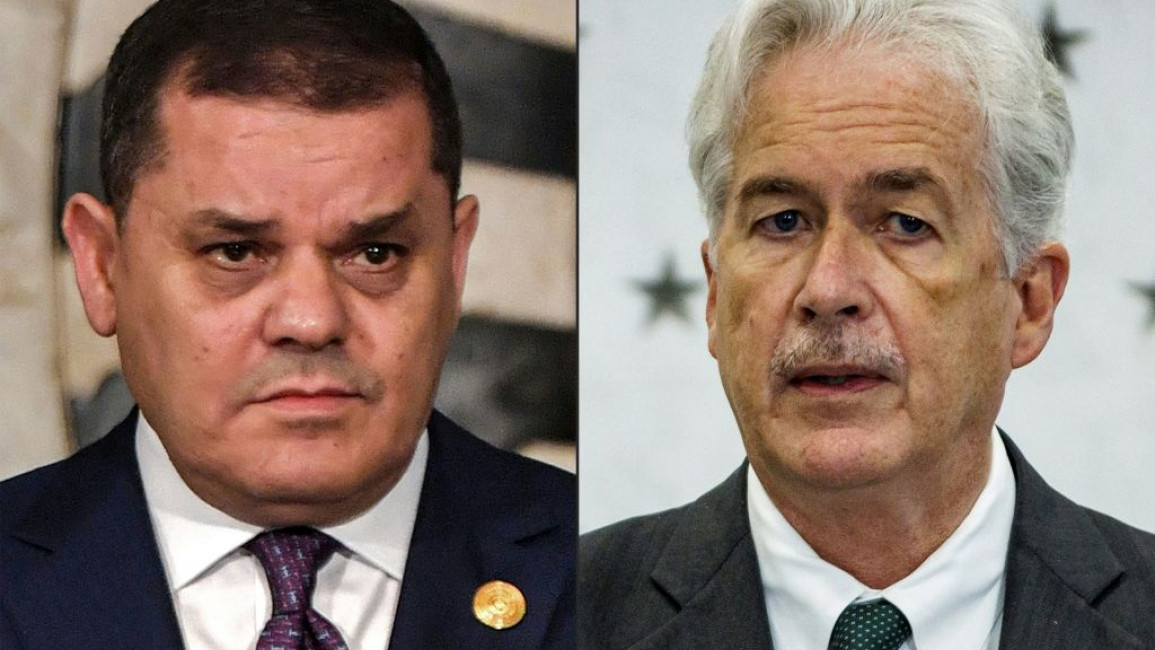CIA chief in Libya after suspect in Lockerbie case handed over
The CIA chief has met with one of Libya's rival prime ministers, the government in the country's capital of Tripoli said on Thursday.
It was a rare visit by a senior US official to the war-torn country, currently split between two rival administrations.
The Tripoli-based government said CIA Director William Burns and Prime Minister Abdul Hamid Al-Dbeibah discussed cooperation, economic and security issues.
It also posted a hand-shaking photo of the two on one of its social media pages.
The statement gave no indication as to when exactly the meeting took place. There was no immediate comment from Washington about Burns' trip.
Burns' visit followed the surprise extradition last month of a former Libyan intelligence officer accused of making the bomb that exploded on a commercial flight above Lockerbie, Scotland, in 1988, killing all onboard and 11 people on the ground.
In December, Washington announced that Abu Agila Mohammad Masud Kheir Al-Marimi, wanted by the United States for his role in bringing down the New York-bound Pan Am Flight 103 since 2020, was in their custody and would face trial.
His handover by Dbeibah's government raised questions of its legality inside Libya, which does not have a standing agreement on extradition with the United States.
Dbeibah's mandate remains highly contested after planned elections did not take place in late 2021.
Torn by civil war since a NATO-backed uprising against former ruler Muammar Gaddafi in 2011, Libya has for years been divided between rival governments in the east and west, each backed by international patrons and numerous armed militias on the ground.
Militia groups have amassed great wealth and power from kidnappings and their involvement in Libya's lucrative human-trafficking trade.
Amid the chaos, in 2012, a terrorist attack on the US consulate in the Libyan city of Benghazi killed four Americans, including US ambassador Chris Stevens.


![President Pezeshkian has denounced Israel's attacks on Lebanon [Getty]](/sites/default/files/styles/image_684x385/public/2173482924.jpeg?h=a5f2f23a&itok=q3evVtko)



 Follow the Middle East's top stories in English at The New Arab on Google News
Follow the Middle East's top stories in English at The New Arab on Google News


